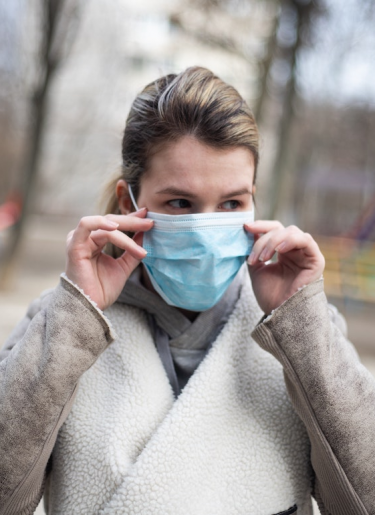
On 16 April 2020, the German Federal Ministry of Labour and Social Affairs (BMAS) published an occupational health and safety standard for COVID 19 (the ‘COVID-19 Standard’). This standard formulates concrete requirements for occupational safety and health to ensure protection of safety and health at the workplace when the economy is recovering in during the pandemic, while at the same time preventing an exponential (re)rise in the number of infections.
The responsibility for the implementation of adequate occupational health and safety lies with the employer. Although there was disappointment in some quarters about the gradual lifting of the restrictions that have been in place since March pursued by the German government, the situation is still very different. However, this approach also provides the opportunity to take occupational health and safety measures where this has not yet been done and to update existing measures with the COVID-19 occupational health and safety standard in mind to minimise compliance risks.
The COVID-19 Standard
The COVID-19 Standard includes regulations on the following points:
The complete text of the COVID-19 Standard is available here.
Please note that the COVID-19 Standard is neither a law nor an ordinance. Rather, it is an industrial hygiene and safety standard specified and supplemented by the industrial hygiene and safety supervisory authorities of the federal states and the accident insurance institutions for specific sectors. It is therefore, at least at currently, only an interpretation standard and an interpretation aid for the employer in implementing occupational health and safety in cooperation with the occupational health and safety specialists and company doctors and works councils (where available).
The COVID-19 Standard must be observed if an employer does not want to expose itself to additional compliance risks in the current crisis through administrative enforcement under occupational health and safety law (e.g. orders and prohibitions), administrative offences and criminal offences as well as claims for damages by employees (s618 of the Civil Code, ‘BGB’).
Technical occupational safety is a basic duty of the employer. The employer is obliged to take the necessary industrial safety measures, taking into account the circumstances that influence the safety and health of employees at work (s3 paragraph 1 sentence 1 of the Occupational Health and Safety Act, ‘ArbSchG’). It must check the effectiveness of the measures and, if necessary, adapt them to changing circumstances (s3 paragraph 1 sentence 2 ArbSchG). The employer has comprehensive and constantly evolving organisational duties. If the COVID-19 Standard is taken into account as part of the employer’s occupational health and safety and compliance management, it can be assumed that tcompliance risks would be minimal minimised regarding necessary infection protection measures in the company.
Observe co-determination rights
Employers must review their existing occupational health and safety in the light of the COVID-19 Standard. The central instrument for this is risk assessment (s5 ArbSchG). The works council’s right of co-determination (in accordance with s87 paragraph 1 sentence 7 Works Constitution Act ‘BetrVG’) must be respected in the risk assessment, but also if occupational safety measures are necessary. The right of co-determination applies if a statutory duty to act objectively exists and, due to the absence of a mandatory requirement, requires company regulations in order to achieve the occupational health and safety goal stipulated by law (Federal Labour Court, February 11, 2014 – 1 ABR 72/12). In the operational implementation of the COVID-19 Standard there is also scope for implementation and action on the part of the employer, despite the fact that some of the specifications are clear at first glance, particularly if alternative protective measures are to be taken. The works council must be involved in this.
The mandatory co-determination rights of the works council (according to s87 paragaph 1 BetrVG) must, however, also be observed for other measures addressed in the COVID-19 Standard, in relation to staggered work and break times and the introduction of shift work to avoid overcrowding of work areas and social facilities (s87 paragraph 1 sentence 2 BetrVG).
Conclusion: managing current and future challenges
The coronavirus pandemic and its management poses considerable challenges for employers, which must be managed with care to avoid liability risks in all areas. In view of the fact that the pandemic situation will continue for some time to come and the possibility of further waves of infection cannot be ruled out, employers are recommended to establish framework regulations (with their works councils) on remote working, on the rapid adjustments to company working time arrangements, on procedures for suspected cases of coronavirus and on company hygiene and conduct rules.


